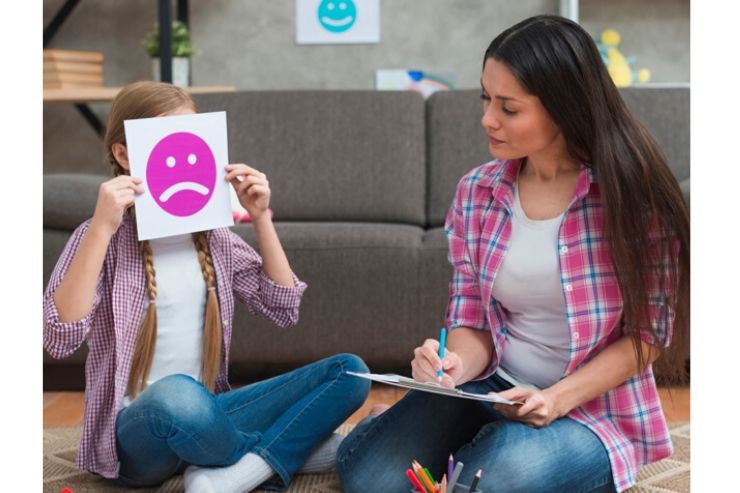- Be accepting: The sooner the parent accepts that their child is having a problem, the earlier the child can be provided with the required treatment, which can help to manage and treat the problem.
- Be attentive: Parents need to be attentive and listen well to their children, which can help to know early signs (in case of depression or psychotic symptoms)
- Be open to seek professional help: Usually, parents are very apprehensive to go visit a psychiatrist or a counselor and don’t want to opt for medication (especially in cases of ADHD and psychosis). This is where they need to realize that it is important to give importance to the child’s need and not the society.
- Get Educated: Parents need to learn and get self-educated on the condition, on what the disorder is. Having this knowledge makes it easier for the parents and children to discuss the problem.
- Communicate with your child: It is very important to keep checking on your child and maintain a two-way health communication in a friendly way so that they can discuss their problems openly. Parents need to be approachable and understanding which will cause less anxiety for a child to discuss the problem.
- Have practical expectations from your child: Don’t overburden them by comparing them to others. Understand their potential and work accordingly with them
- Work with the child: Parents need to be respectful and understanding of the child’s feelings and choices. Things can work at its best when the situation can be tackled diplomatically without getting angry or aggressive. Parents need to find new normal limits according to the child’s potential.
- Maintain healthy and disciplined schedule at home. Assign clear task for everyone in the family which makes it easy for the child to understand his surroundings better. (For especially autistic or ADHD kids)
- Maintain a positive environment at home: Parents should avoid fights and arguments in front of the child and maintain a healthy environment encouraging children to have discussions without any fear.
- Always positively reinforce the child and motivate then even if they don’t come up to your expectations
- Be in regular touch with teachers/school/school’s counselors to know about the child’s performance. Showing interest in the child’s school life shows the seriousness of the parents towards the child and therefore that would lead to the school authorities also showing interest.
How can a parent help a child to deal with psychological disorders?
Having a child with psychological disorders might be challenging for a parent. Every year, 1 in 5 kids aged between 13-18 years’ experience a mental health related condition. This means that there are a lot of parents dealing with techniques to cope up with this problem.
It is important for us to realize that parents are the most important part of the child’s life. A child can do wonders with parent’s support. Parents need to be a little more patient and observant in order to tackle this issue.
Here are a few suggestions:




